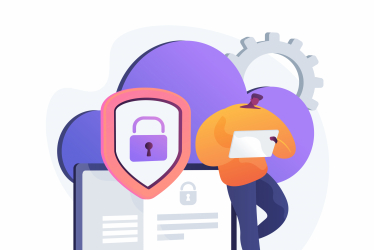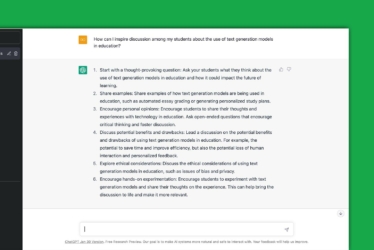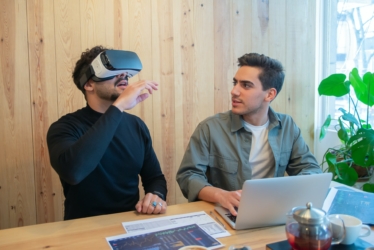Insights
Genetic Privacy: Interview with Robert Zwijnenberg
“There is no fixed human essence, no factor X that defines us as humans.”

What is genetic privacy and what are the ethical concerns surrounding the use of genetic data? Robert Zwijnenberg, full professor Art and Science Interactions at Leiden University, faculty of Humanities, joins us for an interview to shed a light on this topic and his latest online learning adventure The Mind of the Universe: Genetic Privacy. What were your main reasons for wanting to be involved in this project?
“I believe it is very important that the humanities are involved in these kind of discussions. In recent years, the humanities have become less and less involved in setting the agenda on major issues and developments in biotechnology. In debates on the implications of developments in life sciences, scholars often find themselves at the end of the pipeline, so to speak, expected to respond critically to scientific developments or technological applications which have already been put into practice. In the upcoming Online Learning Experience my colleagues and I give the humanities and the arts a relevant and urgent voice in the societal and academic debate.”
Your Online Learning Experience on Genetic Privacy is part of a larger The Mind of the Universe collaboration between VPRO, TU Delft and Erasmus. How has this played a role in the making of this Online Learning Experience?
“There is a sense of technology optimism that the series The Mind of the Universeradiates and there is nothing wrong with that: I happily benefit as much as you from biotechnological inventions and applications. But there is something important at stake too, which we cannot leave to the sciences alone: questions such as who has the right to re-design life – which is ultimately a question of legal and moral ownership and the commodification of life and nature. But also do we think it is necessary, and if so, how do we want to re-design nature and the human body? What limits do we wish to impose on biotechnological innovation involving nature and the human body? And what notion of ‘being human’ and of nature are these limits based on? To be able to introduce these kind of questions into the debate on genetic privacy was a main incentive for us to be part of this collaboration. It gives the humanities and art voices a firm embedding in all the different voices that are important in our society.”
How would you describe, to someone without your kind of background, what genetic privacy is and why it is important to learn more and have a debate on this topic? Where does this fit in with the concept of the human essence and what it means to be human? How important is it to discuss both and how do you address this in the Online Learning Experience?
“In this Online Learning Experience, we didn’t want to impose on the participants already existing notions of genetic privacy, or rehearse with them the scholarly discussions on this issue. What is important to us is that society at large becomes involved in these kind of discussions and develop a sense of ethical and democratic control over and political responsibility for issues such as genetic privacy. This can only be achieved if people start to reflect on their own gut reaction and from there develop a personal perspective on genetic privacy within their own societal position and cultural background to empower themselves as responsible and engaged citizens.
There is no fixed human essence, no factor X that defines us as humans. The answer to the question what it means to be human is in constant flux and as much an issue of biotechnology as of the humanities and the arts. And the problem of genetic privacy should be part of our understanding of ourselves as human beings. In an inclusive democratic society we can and must not allow that one group defines and delimits the parameters of the academic and public discussion. We must insist therefore that as many voices as possible are present in any societal debate. That is why we felt it is essential to include the voices of the arts in this module.”
In an article you wrote for Centre for Innovation’s Trend Report last year, you spoke about the need to curb unregulated commercialisation of new genome editing techniques. Has there been any developments on this front and are you seeing a change in the way ethical considerations are being approached?
“The issue of unregulated commercialisation of new gene editing techniques is still deeply worrying. It is something that will not go away by itself; this commercialisation is another reason to call for a broad public involvement in discussing the societal and ethical implications, but also the political and democratic consequences of biotech innovations. The unregulated commercialisation by biotech companies that we see now happening is threatening democratic control over biotech developments. In the Online Learning Experience, we point to the creeping commodification of your own genetic data and the worrying implications of that. Connected to the unregulated commercialisation is the fact that in the life sciences risk assessment is considered more and more as virtually the same as an ethical assessment. Once patient safety and benefits have been secured, an application is regarded almost by definition as ethical. In our module, we try the bring back a more critical understanding of ethics by starting from emotions, gut feelings; and art works play an important role in this.”
Who have you made the Online Learning Experience on genetic privacy for and what are you hoping it might achieve?
“What we hope for is that we achieve an empowering effect: it is important that as many voices as possible are involved in the debate about genetic privacy. We didn’t want to give answer but to stimulate critical thinking by providing different perspectives. We aim at people who like to be challenged, to critically reflect on their own opinions and further enhance their position as responsible citizens.”
Are you curious about this course? Enrol to Mind of the Universe: Genetic Privacy




